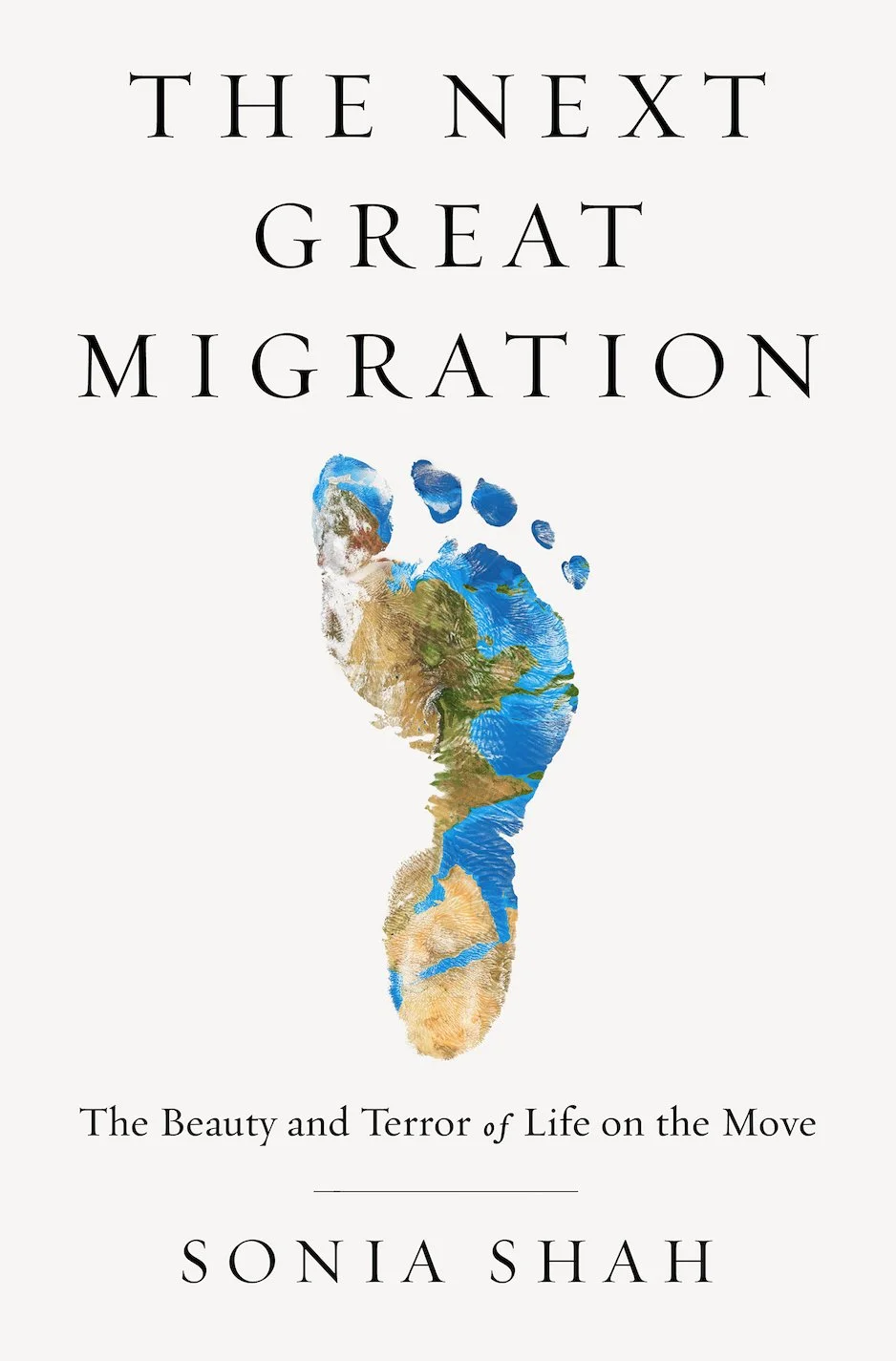Sonia Shah is an investigative journalist and author of critically acclaimed and prize-winning books on science, human-animal relations, and international politics. Her next book is Special: The Rise and Fall of a Beastly Idea, awarded a 2023 Whiting Foundation Creative Nonfiction Grant. Her most recent book, The Next Great Migration: The Beauty and Terror of Life on the Move (Bloomsbury, 2020), was a finalist for the 2021 PEN/E.O Wilson Literary Science Writing Award, and was selected as a best nonfiction book of 2020 by Publishers Weekly, a best science book of 2020 by Amazon, and a best science and technology book of 2020 by Library Journal. Her New York Times magazine article, “How far does wildlife roam,” was included in the collection, Best American Nature and Science Writing 2022.
Her 2016 book, Pandemic: Tracking Contagions from Cholera to Ebola and Beyond (Sarah Crichton Books) has been called “superbly written,” by The Economist, “bracingly intelligent” by Nature, and “provocative” and “chilling,” by the New York Times. It was selected as a New York Times Book Review Editor’s Choice and a finalist for the 2017 Los Angeles Times Book Prize in science/technology, the New York Public Library’s Helen Bernstein Book Award for Excellence in Journalism, and the National Association of Science Writers’ Science in Society Award.
Her critically acclaimed 2010 book, The Fever: How Malaria Has Ruled Humankind for 500,000 Years (Sarah Crichton Books/ Farrar, Straus & Giroux, July 2010), which is based on five years of original reportage in Cameroon, Malawi, Panama and elsewhere, was called a “tour-de-force” by the New York Times, and was long-listed for the Royal Society Winton Prize.
Shah’s prize-winning 2006 drug industry exposé, The Body Hunters: Testing New Drugs on the World’s Poorest Patients (New Press), was described by Publishers Weekly as “a tautly argued study…a trenchant exposé…meticulously researched and packed with documentary evidence.”
Her 2004 book, Crude: The Story of Oil (Seven Stories), was acclaimed as “brilliant” and “beautifully written” by The Guardian and “required reading” by The Nation.
A former writing fellow of the Nation Institute and the Puffin Foundation, Shah’s writing has appeared in The New York Times Magazine, The New Yorker, The Nation, Foreign Affairs, and elsewhere, and has been featured on current affairs programs around the United States, including Democracy Now!, RadioLab, Fresh Air with Terry Gross, and other NPR shows, as well as on CNN, Al Jazeera, and BBC.
Shah is a popular public speaker. Her TED talk on malaria has been viewed by over 1,000,000 around the world; she delivered the opening talk at the 2014 TEDMED conference and she has lectured at universities and colleges across the country, including Columbia’s Earth Institute, MIT, Harvard, Yale, Brown, Georgetown and elsewhere.
In an interview with Democracy Now!, Shah was asked about the spread of Covid-19: “Well, I think the way we think about infectious diseases, like COVID-19, is as if they are a foreign incursion that we have to repel sort of with military might and weaponry. But, in fact, we’re not passive victims of these things. There’s a lot of human agency involved in the infectious disease process. And I think we need to start talking about COVID-19 and other infectious diseases as the social and political phenomenon that they also are.”
She holds a BA in journalism, philosophy, and neuroscience from Oberlin College, and lives with molecular ecologist Mark Bulmer and has two sons, Zakir and Kush.







